Ethereum
Bitcoin, Ethereum, solana, crypto news not to be missed.
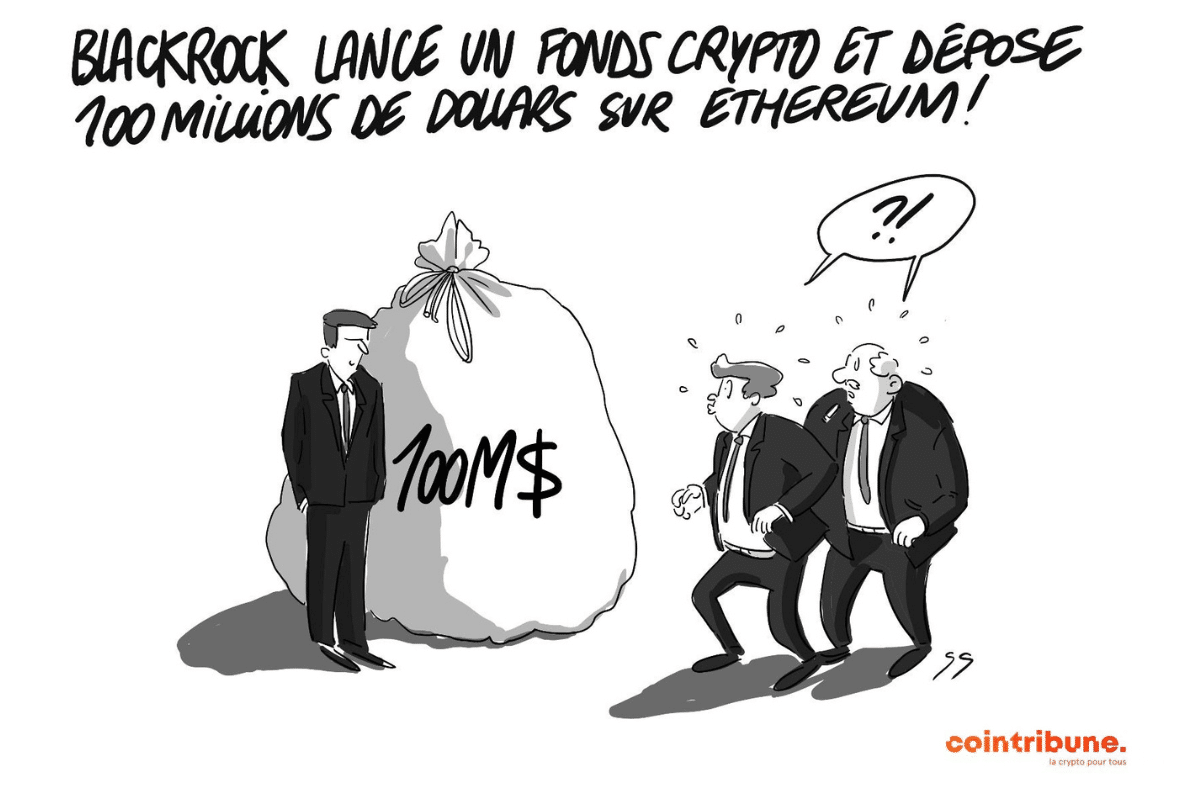
Mon March 25, 2024 ▪ 9 min reading ▪ by Luc Jose A.
From groundbreaking announcements to technological advancements and regulatory turbulence, the crypto ecosystem continues to prove that it is both a land of limitless innovation and a battleground for regulatory and economic struggles. Here is a summary of the most notable news from the last week regarding Bitcoin, Ethereum, Binance, Solana, etc.
Halving after Halving: Bitcoin Aims for $90,000
According to global investment leader Alliance Bernstein, the expected April halving could be the catalyst that propels the price of Bitcoin to new highs. This event, which sees miner rewards halved, has historically led to significant appreciation in the price of Bitcoin due to its effect on its scarcity. Analysts Gautam Chhugani and Mahika Sapra note that although Bitcoin is currently not at the symbolic threshold of $90,000, Market conditions, including enthusiasm around Bitcoin ETFs and reduced selling pressure from miners, are laying the groundwork for an explosive price rally following the halving.
The halving, scheduled for April 20, is an event closely watched by the crypto community for its impact on the Bitcoin economy. It algorithmically and predictably reduces the amount of new bitcoins generated, thereby increasing their scarcity. Bernstein suggests that a combination of factors such as record inflows into crypto funds, particularly ETFs, and favorable market dynamics could lead to significant Bitcoin appreciation. The recent approval of 11 Bitcoin ETFs by the US SEC only reinforces this anticipation.
Solana faces critical congestion: victim of its own success
The Solana blockchain, often praised for its high transaction speeds and low costs, faces a major challenge related to network congestion. This situation is a direct consequence of its growing popularity and mass adoption of its services. Recent reports indicate significant network saturation, leading to notable delays in transaction execution and a compromised user experience. Congestion has been exacerbated by the rise of memecoin activity, which, while reflecting community engagement, has highlighted the limitations of current infrastructure in terms of scalability and stability.
This critical congestion highlights the challenges inherent in managing a high-throughput blockchain like Solana, especially in the face of growing demand and unexpected usage spikes. Transaction confirmation times have increased significantly, with an average ping time of between 20 and 40 seconds and an estimated transaction failure rate of between 50 and 80%. This has sparked criticism from the community and calls for sustainable solutions to improve the network’s capacity and resilience in the face of increased activities.
Giggle Academy: education reinvented by CZ, after Binance
After making his mark in the world of cryptocurrencies thanks to Binance, Changpeng Zhao (CZ) is opening a new chapter with Giggle Academy, an ambitious educational platform. Aiming to democratize access to education, this philanthropic project stands out for its total accessibility and its non-profit model. Giggle Academy aims to break educational barriers by providing a gamified and adaptive learning platform, free for everyone. The initiative highlights CZ’s desire to make a positive contribution to society by providing educational opportunities to those who need them most, particularly young people in regions where access to quality education remains a challenge.
Giggle Academy does not seek to replace traditional education systems but aims to complement and enrich young people’s learning journey. By focusing on basic education and providing quality educational content, CZ hopes to open up better and broader employment prospects for disadvantaged youth.
Controversy over ordinals: Bitcoin between innovation and discord
Bitcoin, often praised for its simplicity and resilience, finds itself at the heart of growing controversy with the advent of Ordinals. These allow the insertion of arbitrary data such as images into Bitcoin transactions and have sparked heated debate within the community. While some see it as a valuable innovation, others criticize a use that diverts the network from its primary mission: to be an efficient and decentralized digital currency. The integration of Ordinals has led to a notable increase in the size of blocks and, by extension, the blockchain, and raises questions about the long-term scalability and efficiency of the network.
The growing use of ordinals and how they are integrated into transactions highlights a fundamental dilemma: how to balance innovation with maintaining the integrity and fundamentals of Bitcoin. The growing discontent against Ordinals reflects broader concerns about the risks of centralization, rising transaction costs and a blockchain cluttered with non-essential data. As the debate continues to rage, the Bitcoin community finds itself at a crossroads, seeking solutions to harmonize the exploration of new possibilities while preserving the very essence that made Bitcoin a technological and financial revolution .
BlackRock enters the crypto scene with a $100 million Ethereum fund
Investment giant BlackRock is making a bold move by launching a groundbreaking crypto fund. By depositing $100 million in USDC on the Ethereum network, BlackRock is sending a powerful message about the future of digital assets.
BlackRock’s initiative represents much more than just investing in crypto; this reflects a recognition of the value and potential of digital assets by the traditional financial sector. The move could encourage other financial giants to explore and invest in cryptocurrencies, thereby increasing the legitimacy and acceptance of cryptocurrencies as a viable asset class.
France establishes itself as a European leader in crypto adoption
In 2024, France will emerge as one of the most advanced European countries in terms of cryptocurrency adoption, with one in eight French people now holding crypto assets, an impressive increase of 28% in just one year. This spectacular increase is mainly attributed to the engagement of French youth, with those under 35 representing 57% of cryptocurrency holders in the country. Pronounced interest in bitcoin continues to dominate, although there is also a diversification of investments into other digital assets such as stablecoins and NFTs, indicating a growing curiosity and openness towards the whole crypto ecosystem.
The motivations behind this mass adoption vary from the search for attractive financial returns to the perception of cryptocurrencies as safe havens in an unstable economic context. Despite recent scandals and bankruptcies in the crypto field, which have raised doubts among some, a significant part of the French population is still considering investing in cryptos. The French invested between 32.5 and 42.5 billion euros in cryptocurrencies in 2024. France, once considered late in the adoption of cryptocurrencies, now appears as a major player on the European scene, although the path to widespread adoption still faces challenges to overcome.
Turbulence for the Ethereum Foundation under the watchful eye of the SEC
The Ethereum Foundation currently finds itself in a precarious position, under the watchful eye of the United States Securities and Exchange Commission (SEC). This scrutiny stems from the SEC’s investigation into the foundation’s financial transactions and activities, particularly after its controversial Initial Coin Offering (ICO) in 2014. The investigation is intensifying in a context where Ethereum’s move to Proof of Stake (PoS) raises questions about its classification as a “security” or “commodity”. This distinction is crucial, as it determines the regulatory framework that applies to Ethereum and could have significant implications for its future, including the viability and approval of Ethereum ETFs.
The SEC, by reviewing the structure and operations of the Switzerland-based Ethereum Foundation, as well as the recently adopted PoS consensus mechanism, seeks to determine whether Ethereum can be considered a “security” under U.S. laws. This potential new classification comes at a critical time, as companies like Prometheum take the initiative to comply with possible regulation by placing themselves under SEC oversight.
That’s the main thing this week. But if you want a more detailed recap and in-depth analysis straight to your inbox, don’t hesitate to subscribe to our weekly newsletter.
Maximize your Cointribune experience with our “Read to Earn” program! Earn points for every article you read and access exclusive rewards. Sign up now and start earning benefits.
Click here to join “Read to Earn” and turn your passion for crypto into rewards!
Luc José A.
A graduate of Sciences Po Toulouse and holder of a blockchain consultant certification issued by Alyra, I joined the Cointribune adventure in 2019. Convinced of the potential of blockchain to transform many sectors of the economy, I took the commitment to raise awareness and inform the general public about this constantly evolving ecosystem. My goal is to enable everyone to better understand blockchain and seize the opportunities it offers. I strive every day to provide an objective analysis of current events, to decipher market trends, to relay the latest technological innovations and to put into perspective the economic and societal issues of this ongoing revolution.
DISCLAIMER
The views, thoughts and opinions expressed in this article belong solely to the author and should not be considered investment advice. Do your own research before making any investment decisions.
Ethereum
Crypto Token Ether (ETH) Rebounds Following Complaint About SEC Investigation Into Ethereum

The Ether token posted its best gain this week amid speculation that U.S. regulatory oversight of the blockchain ecosystem underlying the second-largest digital asset could ease.
The token climbed as much as 3.6% on Wednesday before paring some of its advance to trade at $3,562 as of 12:53 p.m. in Singapore. The rally was a modest tailwind for market leader Bitcoin and a string of smaller rivals.
Ethereum
Will they capture the same buzz in the market?
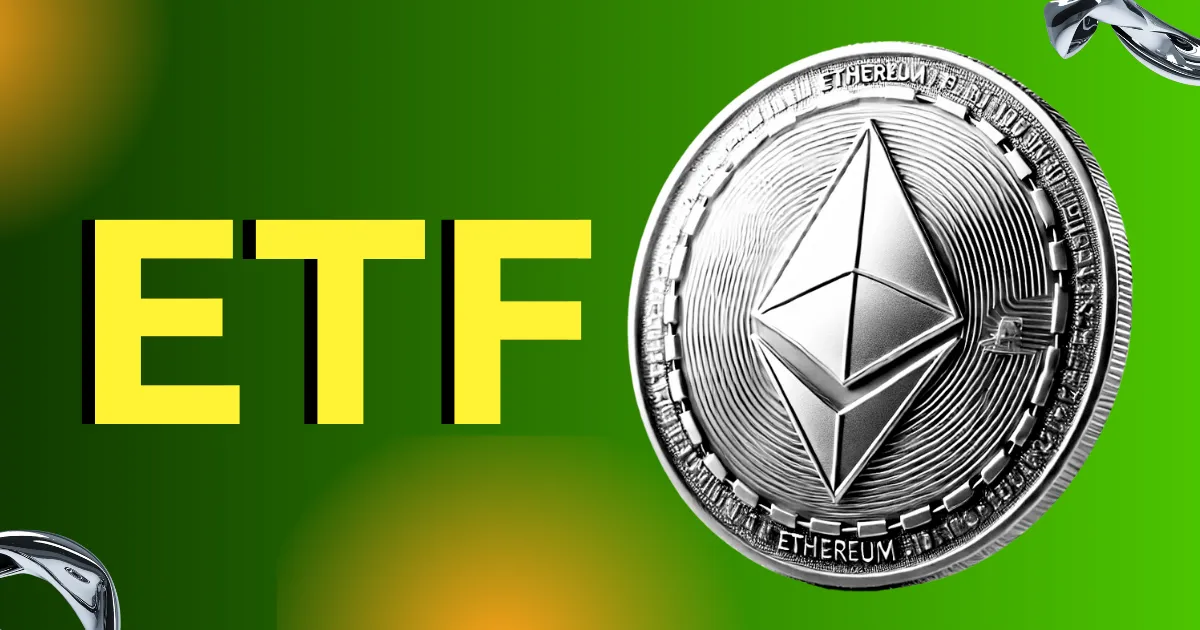
The launch of Ethereum spot exchange traded funds Exchange traded funds (ETFs) attracted significant market interest on July 23, with initial inflows surpassing $100 million. This is a notable change from the previous four days of outflows for U.S. spot Ether ETFs, which saw a total of $33.67 million in new investments.
This figure was, however, partly offset by an outflow of $120.28 million from Grayscale’s Ethereum Trust (ETHE). However, many crypto analysts believe that the Ethereum ETF will soon follow bitcoin’s path.
Ethereum ETF to Track Bitcoin
Katalin Tischhauser, head of investment research at Sygnum Bank and a former Goldman Sachs executive, predicted that Spot Ether exchange-traded funds could attract as much as $10 billion in assets under management in their first year.
She also predicted that Bitcoin ETFs could see inflows of $30 billion to $50 billion in their first 12 months, with Ethereum products likely following the same path.
Tischhauser noted that investing in Ethereum offers distinct advantages over Bitcoin. While Bitcoin is primarily viewed as a store of value, Ethereum’s value comes from revenue and cash flow. This makes Ether more relevant to traditional institutional investors compared to the perception of Bitcoin as “digital gold.”
Fee waivers to attract institutional investors
To attract institutional investors, several ETF issuers are waiving fees for their Ethereum spot funds. Franklin Templeton announced a 0.19% sponsorship fee, but will waive it for the first $10 billion in assets for six months. Meanwhile, Bitwise and VanEck will charge a 0.20% fee through 2025.
BlackRock revised its registration statement for its spot Ethereum ETF, ETHA, to include a 0.25% management fee. Grayscale launched its Grayscale Ethereum Mini Trust with the same 0.25% fee.
Ethereum ETFs Exclude Staking
The enthusiasm is, however, tempered by the lack of staking rewards of these ETFs. In May, BlackRock, Grayscale and Bitwise removed staking provisions from their SEC filings after discussions with the SEC.
As traditional investment institutions are limited by regulations and legal constraints, they can only invest through ETFs, without resorting to staking.
Also see: Crypto News Today: Bitcoin, Ethereum Brace for Volatility as Fed Holds Rates
Ethereum
SEC Hints It May Approve Ethereum ETFs at Last Minute, But ‘No Issuers Are Ready’

It sounded like an almost certain rejection from the Securities and Exchange Commissionbut just hours before the May 23 deadline to rule on VanEck’s application to launch an Ethereum spot exchange traded fundIt appears that the SEC may reconsider its decision.
CoinDesk First reported On Monday, the nine potential issuers that had filed to list and trade the ETFs were “abruptly” asked by regulators to update their 19b-4 filings on an expedited basis. A 19b-4 is what an exchange like the NYSE requires for new product introductions — in other words, the applicants and the exchange ask the SEC for permission to add the ETFs to their platforms.
Since rumors began circulating Monday afternoon, the price of Ether has climbed nearly 20%, trading near $3,750 as of 1:30 p.m. ET Tuesday.
It’s hard to believe that the SEC would do us a favor by approving the ETH spot ETF.
But politics is politics, and crypto has been winning the political battle for months.
Perhaps the Biden camp saw how many voters Trump could win over with a single pro-crypto comment and decided to change course.
— Jake Chervinsky (@jchervinsky) May 21, 2024
Since VanEck is the first exchange to file, its approval could hypothetically be a green light for others waiting to hear about their own 19b-4s. While rumors began circulating Monday that applications were being worked on, Bloomberg analysts updated their ratings from 25% to 75% approval.
But the news left issuers scratching their heads. Every issuer Bloomberg ETF analyst James Seyffart spoke to was “caught off guard by the SEC’s 180-degree turn,” he told Fortune. The agency reached out to filers for comment and updates just three days before the deadline, he said.
“This is not standard operating procedure, and everyone from issuers to exchanges to lawyers to market makers and more are scrambling to be ready for eventual approval and to meet SEC requirements,” Seyffart adds. The hasty nature of the pivot suggests it was likely a “political move,” the result of a “top-down decision” by the Biden administration, he speculates. “No issuer is ready,” he wrote on X.
It’s hard to believe that the SEC would do us a favor by approving the ETH spot ETF.
But politics is politics, and crypto has been winning the political battle for months.
Perhaps the Biden camp saw how many voters Trump could win over with a single pro-crypto comment and decided to change course.
— Jake Chervinsky (@jchervinsky) May 21, 2024
So far, Grayscale is the only potential issuer to post an update 19b-4 to the New York Stock Exchange website, for its application to transfer its Ethereum Mini Trust ETF. Meanwhile, Fidelity has abandoned its plan to put Ether in its ETF, according to a S-1 Update The filing was made with the SEC early Tuesday. In previous filings, the company had said it intended to “stake a portion of the trust assets” to “one or more” infrastructure providers, but now it “will not stake Ether” stored with the custodian.
Staking involves committing Ether to secure the network in exchange for a yield, which is currently around 3%, according to data from staking service Lido. Ark and Franklin Templeton have also considered staking in their applications. In today’s 19b-4 update from Grayscale, the company confirmed that it would not participate in staking. The fact that Grayscale highlighted this and Fidelity omitted it suggests that the SEC may have asked that staking be banned. Vance Spencer, co-founder of Business executivestold Fortune he believed the SEC’s last-minute requests included advice on staking.
Staking the underlying Ether in the ETF has been seen as a reason the SEC could reject the applications, with Chairman Gary Gensler expressing concern in March that digital assets using staking protocols could be considered securities under federal law. Staking could be “a significant complication,” Bitwise CIO Matt Hougan said. previously said Fortune.
However, even if the SEC approves VanEck’s 19b-4 on Thursday, it doesn’t guarantee clearance, as exchanges will need S-1 filings from issuers before the products can begin trading. When filing to launch a new security, an S-1 is the form that describes to potential investors and the SEC the structure of the asset, how it will be managed and, in this case, how it plans to mirror the performance of the underlying asset, namely Ether tokens.
But S-1 projects could take “weeks, if not months” to be approved, Seyffart said. written on X“That said, if we are correct and see these theoretical approvals later this week, that should mean that S-1 approvals are a matter of ‘when’ and not ‘if.’”
Recommended newsletter:
CEO Daily provides essential context for the information business leaders need to know. Every weekday morning, more than 125,000 readers trust CEO Daily for insights into leaders and their businesses. Subscribe now.
Fuente
Ethereum
FOMC Holds Interest Rates Steady, Bitcoin and Ethereum Prices Fall
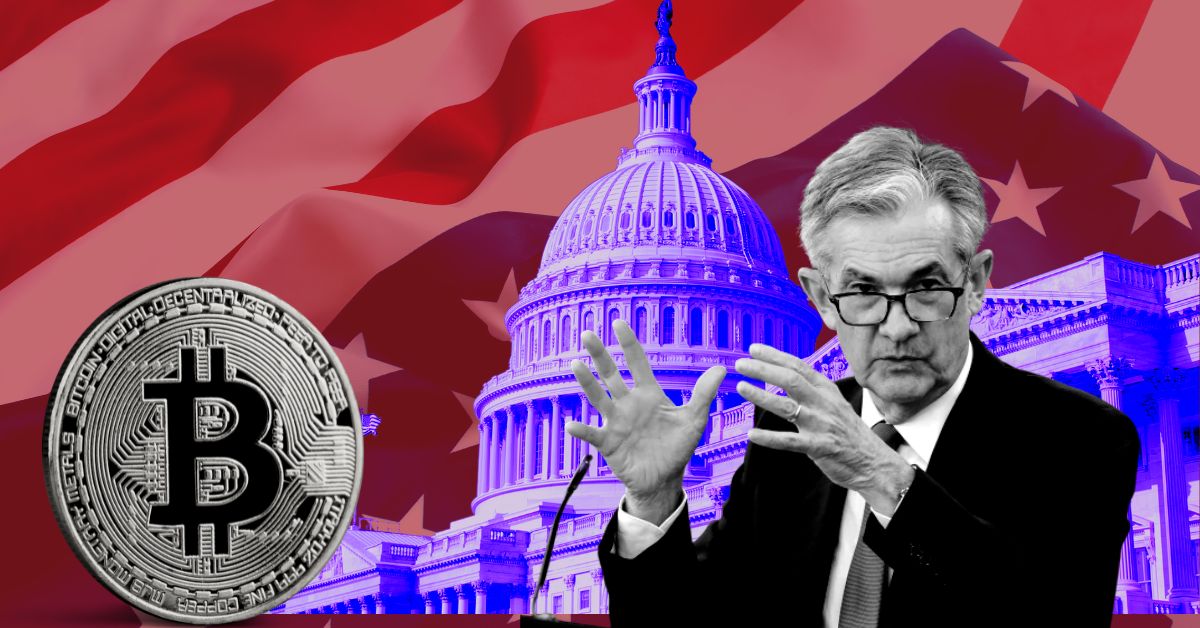
After Federal Reserve Chairman Jerome Powell said a September rate cut “could be on the cards,” stocks soared to session highs. The tech-heavy Nasdaq 100 climbed 3.3% and the S&P 500 climbed 2%. However, the king cryptocurrency Bitcoin (BTC) fell 1.3% to $66,088, and Ethereum (ETH) fell about 1.11% to $3,313. Over the past 24 hours, the global cryptocurrency market cap also fell 0.71% to $2.39 trillion.
However, market analysts believe that this is a short-term decline, as Bitcoin and other cryptocurrencies, despite being in a bearish situation, are showing bullish signals. Although BTC is still struggling to break the $70,000 mark, it will be interesting to see how BTC will react in August before the rate cuts.
Federal Reserve Decision
On July 31, the U.S. Federal Reserve concluded a two-day meeting of the Federal Open Market Committee (FOMC) by choosing to keep benchmark interest rates unchanged at 5.25%-5.50%, in line with Wall Street expectations. The decision marked the eighth consecutive meeting without a rate change.
Towards a market rebound?
According to SantimentThe FOMC’s decision to maintain current interest rates led to an initial decline in cryptocurrency prices. Traders were hoping for a rate cut, which hasn’t happened since March 2020. A future rate cut could signal bullish trends for stocks and cryptocurrencies, potentially boosting markets for the remainder of 2024. Despite the initial sell-off, markets are likely to stabilize unless another major event impacts the cryptocurrency sector.
In the meantime, aggressive accumulation by bulls and increasing negative sentiment among the crowd could set the stage for a substantial market rebound.
Understanding the broader impact
Despite the anticipation surrounding the FOMC meeting, the impact on cryptocurrencies was limited as the pause on rates had already been factored into prices. Previous Fed decisions have shown minimal major impact on Bitcoin prices.
Historically, FOMC actions affect all asset classes. In 2020 and 2021, Bitcoin and other altcoins soared when the Fed cut rates to zero, only to reverse course in 2022 when rates began to rise. Investors moved trillions of dollars into lower-risk assets, with money market funds amassing over $6.1 trillion, earning an average return of 5%.
Furthermore, Bitcoin’s immediate resistance is noted at $66,852, with support at $65,000. The RSI is signaling oversold conditions, suggesting further declines are possible if the price falls below $65,900.
Investors are now closely watching the FOMC meeting for clues about inflation and economic growth, which could influence Bitcoin’s next move.
-
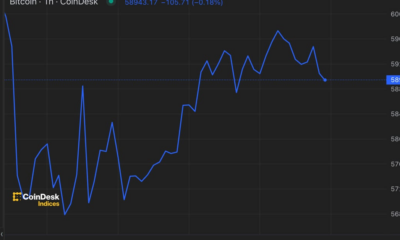
 News1 year ago
News1 year agoBitcoin (BTC) price recovery faces test on non-farm payrolls
-

 Bitcoin12 months ago
Bitcoin12 months ago1 Top Cryptocurrency That Could Surge Over 4,300%, According to This Wall Street Firm
-

 Altcoins12 months ago
Altcoins12 months agoOn-chain data confirms whales are preparing for altcoin surge with increased buy orders
-

 Bitcoin12 months ago
Bitcoin12 months agoThe US government may start accumulating Bitcoin, but how and why?
-
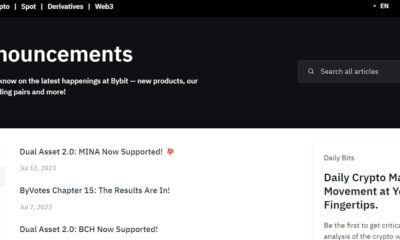
 News1 year ago
News1 year agoNew ByBit Listings for 2024: 10 Potential Listings
-

 News1 year ago
News1 year ago11 Best Crypto TikTok Accounts & Influencers in 2024
-

 Altcoins1 year ago
Altcoins1 year agoMarket giants have taken action!
-

 News1 year ago
News1 year ago11 Best Shitcoins to Buy in 2024: The Full List
-

 Ethereum1 year ago
Ethereum1 year agoTop Meme Coins by Market Capitalization in 2024
-

 News1 year ago
News1 year ago1.08 Trillion SHIBs Dumped on Major Crypto Exchange, What’s Going On?
-

 News1 year ago
News1 year ago19 Best Crypto Games to Play in 2024
-

 Altcoins1 year ago
Altcoins1 year agoAltcoin Recommended by Crypto Expert for Today’s Portfolio





